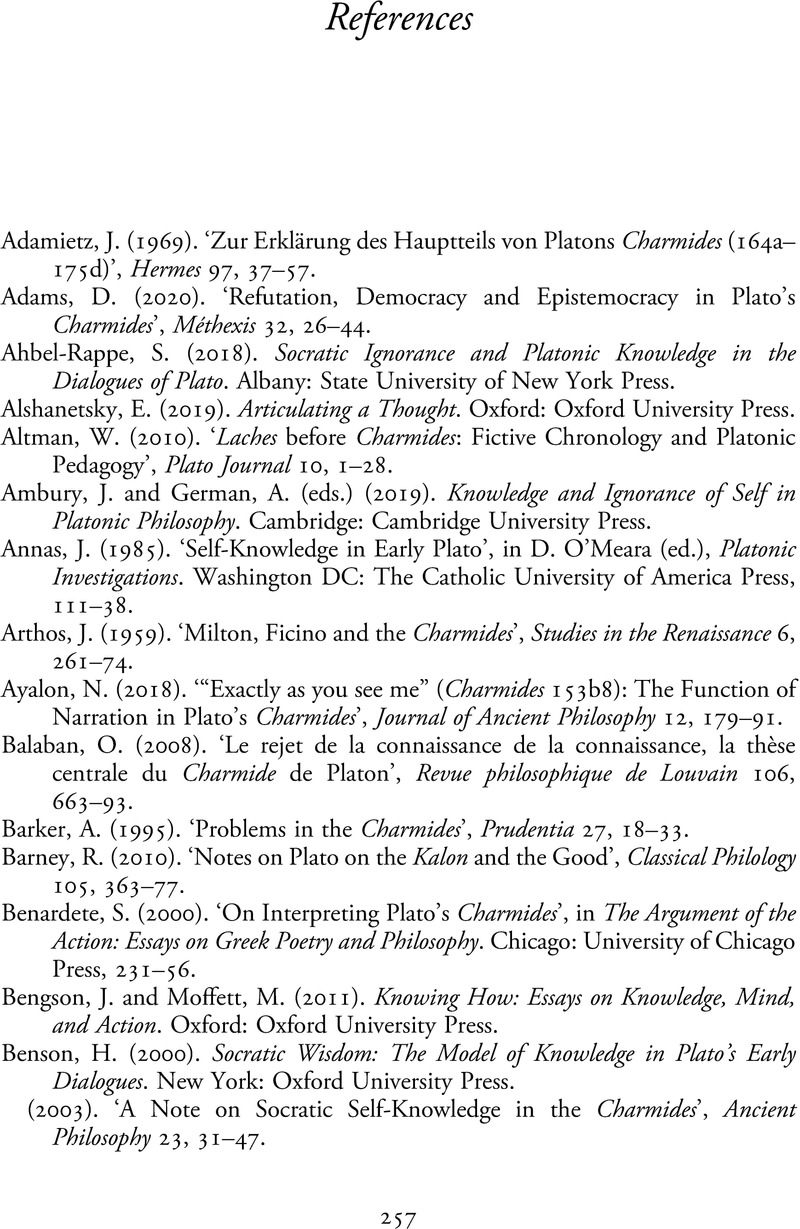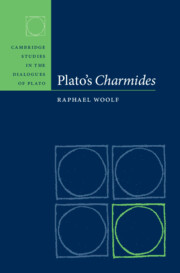Book contents
- Plato’s Charmides
- Cambridge Studies in the Dial Ogues of Plato
- Plato’s Charmides
- Copyright page
- Dedication
- Contents
- Acknowledgements
- Chapter 1 Introduction
- Chapter 2 The Stance of Enquiry
- Chapter 3 Charmides, Eros and the Unity of the Dialogue
- Chapter 4 Interpreting Temperance
- Chapter 5 The Art of Self-Realisation
- Chapter 6 Conclusion
- References
- Index of Ancient Passages
- General Index
- References
References
Published online by Cambridge University Press: 20 July 2023
- Plato’s Charmides
- Cambridge Studies in the Dial Ogues of Plato
- Plato’s Charmides
- Copyright page
- Dedication
- Contents
- Acknowledgements
- Chapter 1 Introduction
- Chapter 2 The Stance of Enquiry
- Chapter 3 Charmides, Eros and the Unity of the Dialogue
- Chapter 4 Interpreting Temperance
- Chapter 5 The Art of Self-Realisation
- Chapter 6 Conclusion
- References
- Index of Ancient Passages
- General Index
- References
Summary

- Type
- Chapter
- Information
- Plato's Charmides , pp. 257 - 267Publisher: Cambridge University PressPrint publication year: 2023



